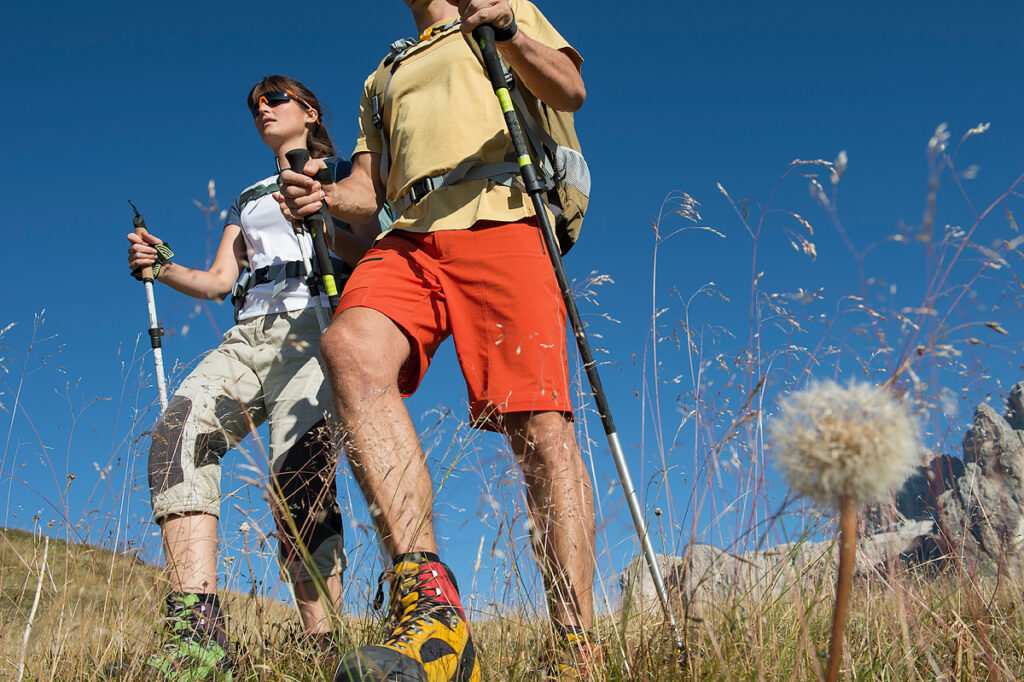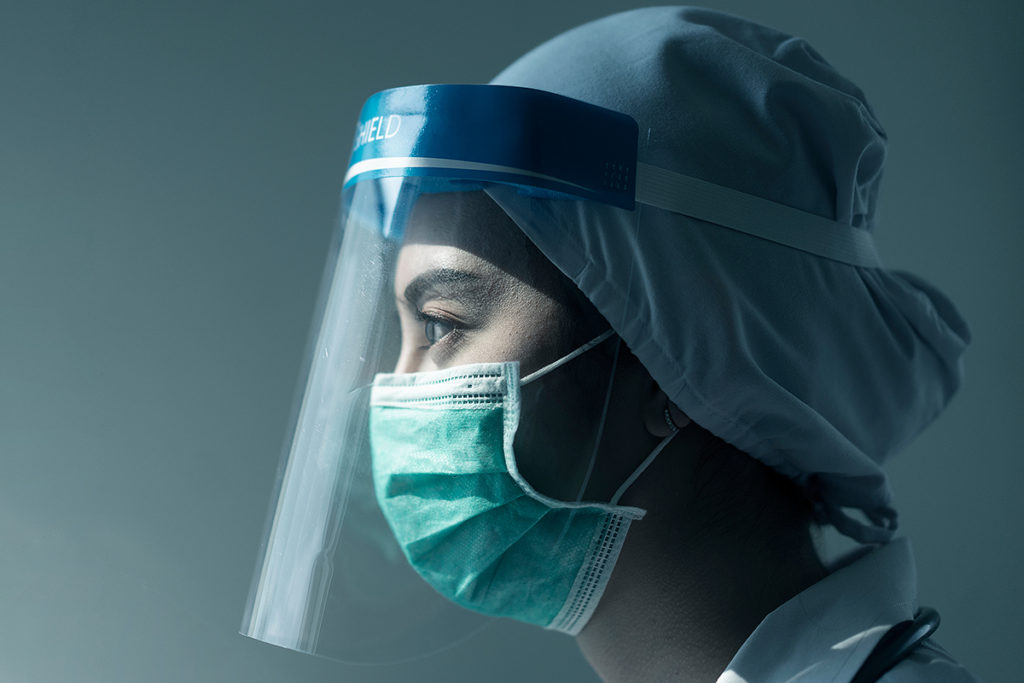The number of people vaccinated against coronavirus is growing, the incidence rate is decreasing in many regions, and countries are opening borders for tourists. Nevertheless, the pandemic is not over yet. At airports, train stations, public transport and cafes next to us, there may be COVID-19 patients. Even after vaccination, no one is 100% safe from coronavirus infection. How to protect yourself from SARS-CoV-2 infection?
CDC Guidelines for The Prevention Of SARS-Cov-2 Coronavirus
The US Centers for Disease Control and Prevention (CDC) offers the following list of preventive measures for both fully vaccinated and unvaccinated people:
- Regardless of vaccination status, masks must be worn. The mask should cover both the mouth and nose. You cannot wear a mask on your forehead or chin. Masks are needed on airplanes, trains, buses and other forms of public transport, and in the premises of airports and train stations. However, in open areas of transport, wearing a mask is optional. CNN Medical analyst Leana Ven complements the recommendation on masks on public transport: “Unvaccinated people should wear a high-quality mask (such as N95 or KN95) or a double mask for the entire flight.” Wearing a mask is to protect not only yourself but also those around you.
- Maintain social distance whenever possible. The safest thing to do is avoid crowds and stay at a distance of 2 meters – two arm lengths. Many public places have social distancing zones for convenience and safety.
- Wash often hands with soap and water for at least 20 seconds. If soap and water are not available, use a hand sanitizer with at least 60% alcohol. SARS-CoV-2 lasts up to 1 month on various surfaces. Wash your hands earlier – to protect yourself and your family.
- For the unvaccinated – take a PCR test 1-3 days before the trip.
- For the unvaccinated – recommendations after the trip. Take a PCR test 3-5 days after returning. Be in self-isolation for 7 days and check your condition for symptoms of coronavirus. Avoid contact with people at increased risk of severe COVID-19 for 14 days.
- For fully vaccinated people – advice after the trip. Check your condition for symptoms of coronavirus. If symptoms appear, isolate and take a PCR test.
- COVID-19 prevention on the plane. Most airlines disinfect all surfaces in the aircraft cabin. The air on the plane is purified by HEPA filters, which remove 99.9% of particles, bacteria and viruses. The air is fed from top to bottom and refreshed every 2-3 minutes. Despite these measures, it is crucial to take care of your health on your own. Do not touch the magazine in the front seat pocket. Do not touch the mask. If the mask gets dirty or wet, replace it with a new one – often, there is a supply of masks on the plane. Ideally, take a spare mask with you in your carry-on baggage. Moreover, besides her, an airtight bag and disinfectant wipe to pack the used mask and treat your hands.
- COVID-19 prevention in catering establishments. Many people gather in restaurants and bars, so it is more challenging to maintain a social distance. Intense noise or loud music makes visitors speak louder, and more viral aerosols are released. Leana Ven adds: “A restaurant that has some spacing between tables and good ventilation will be safer than a bar that’s standing room only and so loud that people have to shout to hear one another.” The safest thing to do is order food with you, choose outdoor seating, and refuse alcohol. Alcohol can compromise safety compliance. You should not touch the salt shaker and sugar bowl – it is better to ask for individual packages. It is essential to wash or disinfect your hands both before and after visiting a restaurant.
- Observe respiratory etiquette. Wash your hands before using any form of transport. After arriving at your destination, rewash your hands. Do not touch your nose, mouth and eyes with unwashed hands. Cover your nose and mouth with a tissue when sneezing. After that, wash your hands.
In addition to this list of preventive measures, the CDC recommends assessing the risk of contracting coronavirus in advance – using the link “COVID-19 Travel Recommendations“, you can find out in which countries the incidence rate is highest. The information is constantly updated.
The CDC explains that fully vaccinated people are those who have received WHO-approved vaccines. Follow the link to view the status of vaccine approvals on the WHO website.
While vaccination reduces the risk of contracting and developing severe COVID-19, it does not guarantee 100% protection.
Prevention Measures Are Necessary but Not Sufficient
Despite anti-epidemic measures, the number of patients with COVID-19 is growing in the world. The primary method of spreading SARS-CoV-2 is airborne. The infectiousness of the virus in the air lasts up to 3 hours. Moreover, the coronavirus can be transmitted through contact with infected people and surfaces. Scientists believe that anti-epidemic measures aimed at combating COVID-19 are insufficient and require a new approach to prevention.
Two Vaccine Issues
It is assumed that the vaccines contain the coronavirus spike protein S, in response to which the body will produce neutralizing and non-neutralizing antibodies. The vaccine should induce long-term active acquired immunity, which works by both antibodies and immune cells, and effectively prevents the development of COVID-19.
Vaccines containing inactivated viruses or nucleic acids encoding a specific viral protein can trigger the formation of high levels of specific IgM and IgG antibodies. However, they usually do not stimulate cellular immunity, which is associated with cytotoxic T lymphocytes. These cells effectively prevent the spread of viral infection.
The primary condition for using the vaccine in healthy people is safety. There is currently a risk that vaccination could aggravate subsequent SARS-CoV-2 infection. There are two syndromes in which antibodies are to blame:
- Antibody-dependent enhancement of infection (ADE). The syndrome occurs due to the presence of non-neutralizing or sub-neutralizing antibodies that bind to viral particles. ADE enhances the infection of cells susceptible to coronavirus and can also spread the virus to cells of the immune system such as monocytes and macrophages. It will suppress the innate cellular antiviral response. As a result, the multiplication of the virus will intensify, and the clinical symptoms will worsen. ADE has been observed in the therapeutic use of convalescent plasma with antibodies against SARS-CoV-2 and after immunization of cats with the veterinary coronavirus vaccine.
- Vaccine-Associated Enhanced Respiratory Disease (VAERD). VAERD mainly occurs after the administration of a vaccine containing conformationally incorrect antigens. VAERD can result from two mechanisms. One of them is the binding of antibodies to antigens and, at a high viral load, the deposition of proteins formed from their interaction in the lung tissue. In places of deposition, inflammation occurs. Another mechanism is associated with the activation of protective blood proteins, the expression of pro-allergic cytokines and, as a consequence, the development of allergic inflammation. VAERD has been observed in humans immunized with measles and respiratory syncytial virus (RSV) vaccines and in animals from SARS.
The New COVID-19 Prevention Strategy is to Trigger Innate Immunity
The SARS-CoV-2 coronavirus continues to pose a severe threat to the health and lives of people around the world. It is necessary to implement a new strategy to prevent COVID-19 based on stimulating cellular antiviral activity.
The coronavirus can be asymptomatic or mild/moderate. There are more than 90% of such cases among children aged 2 to 13 years. The absence of clinical symptoms of the disease or their minimization depends on the activity of innate immunity, which limits both the development of viral infection and its pathogenicity. However, this activity does not stop the reproduction of the virus completely. SARS-CoV-2 can replicate to low, detectable levels, which explains the positive test result in asymptomatic patients.
Scientists recommend using interferon to prevent coronavirus
The cellular response of interferon (IFN) plays a vital role in the body’s nonspecific antiviral defense. IFN-alpha and IFN-beta are produced by almost all cells in response to viral infection. Interferon activates ISG genes (interferon-stimulated genes), which have antiviral effects.
SARS-CoV-2 suppresses the interferon response. The development of severe COVID-19 may be the result of an ineffective IFN response.
Studies in cultured cells have demonstrated that coronavirus replication is reduced when cells are treated with IFN-alpha and IFN-beta at clinically achievable concentrations in patients. IFN-alpha also induces an innate autophagic response that suppresses SARS-CoV-2. Thus, type I interferons, which include IFN-alpha and IFN-beta, increase innate immunity and help limit viral infection and the spread of SARS-CoV-2.
In earlier clinical randomized controlled trials in adults, the possibility of using human recombinant IFN-alpha (nasal spray) or natural (oral lozenges) to prevent acute respiratory diseases such as ARI.
However, a significant limitation of cases of ARI was confirmed only in patients who used recombinant IFN-alpha in the form of a nasal spray. Recombinant IFN-alpha in aerosol inhalation form is currently undergoing clinical trials. The results show that IFN-alpha, given twice daily for 15 minutes for 10 days, can be effective and safe in preventing COVID-19.
Proven in Travelers: Nasal Drops Containing Recombinant Interferon-Alpha-2b Protect Against COVID-19
The drug IFN-alpha-2b, developed by the Center for Genetic Engineering and Biotechnology of Cuba, was voluntarily used by travelers and their families. Cuban virologist Amilcar Perez Riverol explains: “It is used prophylactically, that is, in advance to avoid infection. Furthermore, in any case, if an infection is not avoided, the clinical picture will not turn into the most severe forms. In no case should it be considered a vaccine? It is an immunomodulator that enhances the body’s immune response.”
From 14 to 24 January 2021, 103 adult international travelers arriving in Cardenas, Cuba, as well as 317 of their loved ones (all with negative primary PCR test results for SARS-CoV-2), received drops of IFN-alpha-2b. Each was visited daily for 15 days to determine if SARS-CoV-2 infection and monitor for any potential side effects of the drug. After 15 days, the PCR results and clinical examination showed that neither the travelers nor their loved ones were infected.
The only reported adverse events were headache in 17% and weakness in 3% of cases. All side effects were mild, transient, and limited. No one has had to stop taking the medication (twice a day) because of the potential side effects associated with it.
Conclusions
Vaccination is a critical step in the fight against the SARS-CoV-2 pandemic. However, both fully vaccinated and unvaccinated people need to follow preventive measures to protect themselves and those around them. To strengthen the body’s antiviral defenses and prevent infection with coronavirus, scientists recommend travelers to use nasal IFN-alpha-2b.
Sources
- Towards a more effective strategy for COVID-19 prevention (Review)
- An Experience with Cuban Biotech’s Nasalferon to Prevent SARS-COV-2 Infections in International Travelers and their Contacts
- Nasalferón: ¿gotas nasales de Cuba contra COVID-19?
- Domestic Travel During COVID-19
- Protect Yourself When Using Transportation
- Personal and Social Activities
- Is it safe to travel this summer? A medical expert explains



